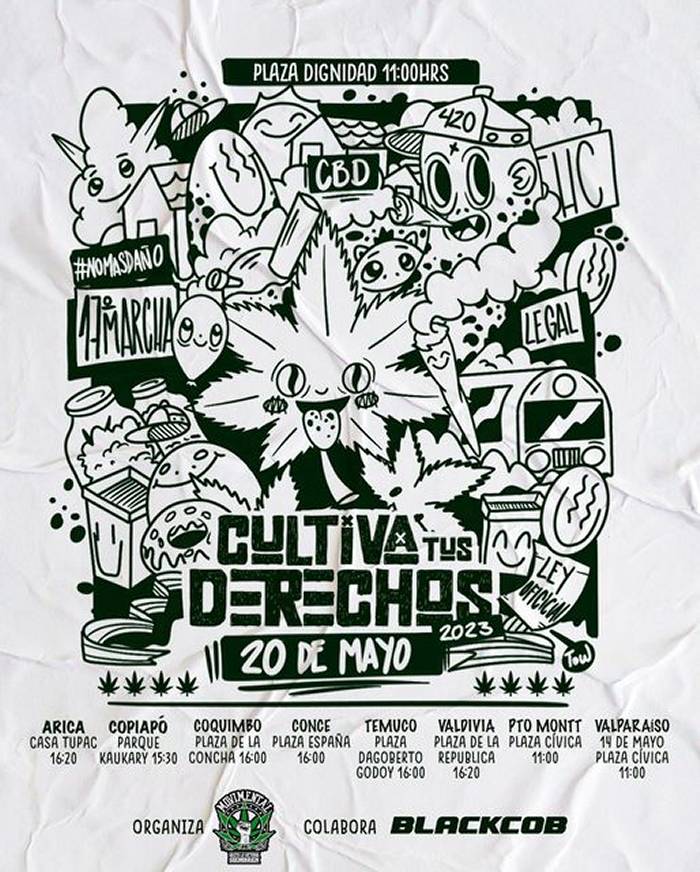Under the slogan #Nomasdaño, various organizations are calling The 17th version of the march cultivates your rights that will be held this Saturday 20 of May simultaneously in several cities in the country.
In Santiago, The meeting point will be the Dignity square (Italy-Baquedano), to 11:00 hours, while there will also be marches in the cities of Arica, Copiapo, coquimbo, Conception, Temuco, Valdivia, Puerto Montt and Coyhaique.
“One more time, We will march under the #nomasdaño slogan, evidencing how the prohibition, driven by the war on drugs, has affected our community transversely, producing more damage than it seeks to prevent”, Point out Movimental, one of the organizations that summons the march.
“We cannot continue perpetuating a system that has empowered the black market worldwide, Finishing mafias and corrupting all levels of governments. This model perpetuates the stigmatization of vulnerable sectors, Invisibilizes problematic users, Inject resources to criminal gangs, allows the corruptibility of the state apparatus and police, and promotes violence between criminal gangs for territorial controls”, Add the entity.
One of the main demands is “the change of the current model” by a new drug policy in which the usurys are not criminalized as the present.
“Chile needs to modernize and advance with other countries in the region towards an integral regulation of cannabis. The great work of the transverse bench regulation by peace meant a very important advance in the protection of medicinal users who cultivate with the approval of indication in the Antinarco law, No doubt the most important milestone of recent years”, The statement emphasizes.
Movement emphasizes that “We must guarantee regulated access, universal and responsible for cannabis for all the people who decide or require, Far from drug trafficking networks, which will make it possible to raise taxes and snatch the business from the narcos and the black market (…) Our proposal includes a new look at the drug phenomenon, abandoning prohibitionism and advancing towards a regulation centered on people, its realities and our national context”.





















